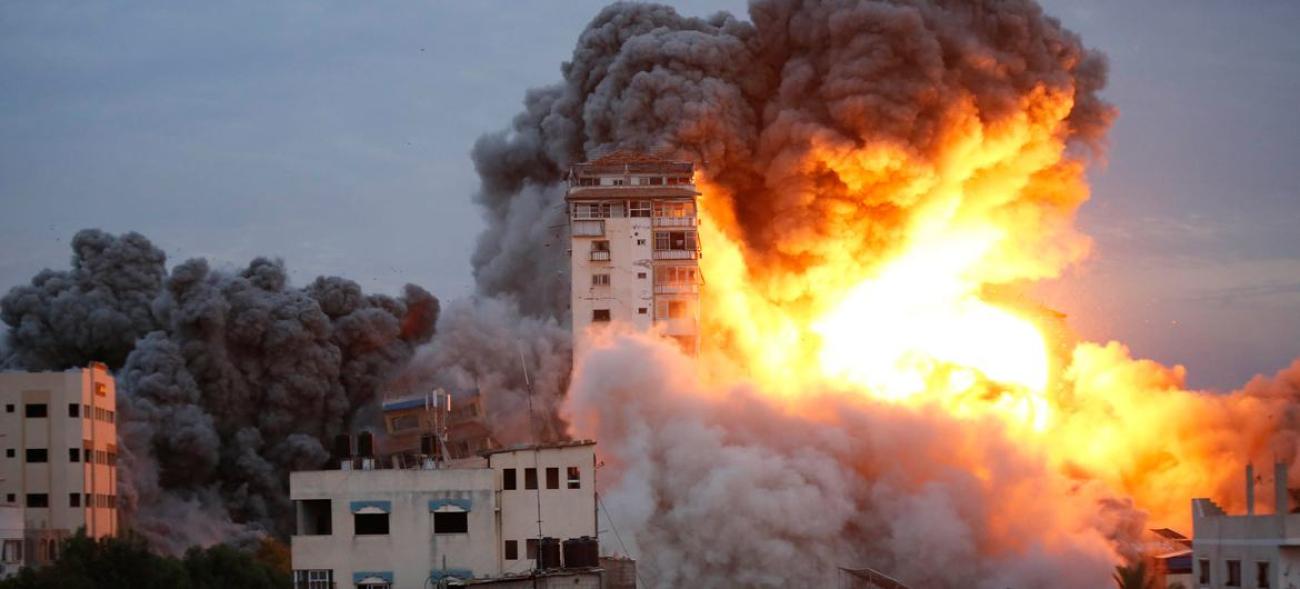UN Special Adviser ‘horrified’ at suffering of civilians in the Middle East

The UN Special Adviser on the Prevention of Genocide expressed profound horror at the ongoing situation in the Middle East
The UN Special Adviser on the Prevention of Genocide on Friday expressed profound horror at the ongoing situation in the Middle East, reiterating the call for a humanitarian ceasefire and protection of civilians.
Alice Wairimu Nderitu also underscored the need to intensify diplomatic efforts to bring the crisis to an end.
“Civilians should never pay the price of a conflict for which they bear no responsibility,” she said in a statement.
“Their most basic rights must be protected and preserved, and their humanitarian needs must be met,” she added.
Wednesday marked the fourth month of the brutal war in Gaza.
The conflict erupted on 7 October, when Hamas and other Palestinian militants attacked southern Israel, leaving some 1,200 Israelis dead and more than 250 taken hostage.
In the ensuing military operation by Israel in the Gaza Strip, at least 27,840 Palestinians have been killed with more than 67,300 injured, according to the local health authority. Over 1.7 million Gazans have been displaced, and the enclave has suffered massive destruction of houses, schools, hospitals and other vital infrastructure.
Strengthen resolve to end conflict
The Special Adviser also called on all relevant actors to strengthen their resolve to find an end to the conflict.
This requires first and foremost ensuring the protection of civilians and civilian infrastructure in accordance with international law, she said.
She also called for the safe return of all hostages still held by Hamas in Gaza as well as investigating acts of sexual violence reportedly committed in the context of the 7 October attacks and their aftermath.
ICJ decision
The statement also referred to the provisional measures ordered by the International Court of Justice (ICJ) in the case brought forward by South Africa against Israel on prevention of genocide in the Gaza Strip.
Ms. Nderitu noted that neither the UN Secretary-General nor herself, as his Special Adviser, “take a position” in relation to ongoing judicial proceedings before the court.
In the 26 January decision, the ICJ ordered Israel, inter alia, in accordance with its obligations under the Genocide Convention, “to take all measures within its power” to prevent the commission of acts within the scope of article II of the instrument, including killing, causing serious bodily or mental harm, deliberately inflicting conditions of life calculated to bring about the group’s destruction and imposing measures intended to prevent births.
The court also ordered Israel to “ensure with immediate effect that its military forces do not commit any of the above-described acts”.
Regional spillover
The Special Adviser also echoed the Secretary-General’s concern over the spillover effects of the war in Gaza in the West Bank and the wider Middle East region.
She reiterated concern over the impact of the conflict across the world, urging that efforts be put in place for communities to co-exist peacefully and for all grievances to be addressed constructively and peacefully.
“Inflammatory remarks, dehumanizing rhetoric and hate speech can only contribute to ignite further violence and reduce the space for ending the conflict,” Ms. Nderitu said.
“Political leaders have a special responsibility to refrain from using such hateful narratives and implement all possible measures to defuse ongoing tensions,” she added.

